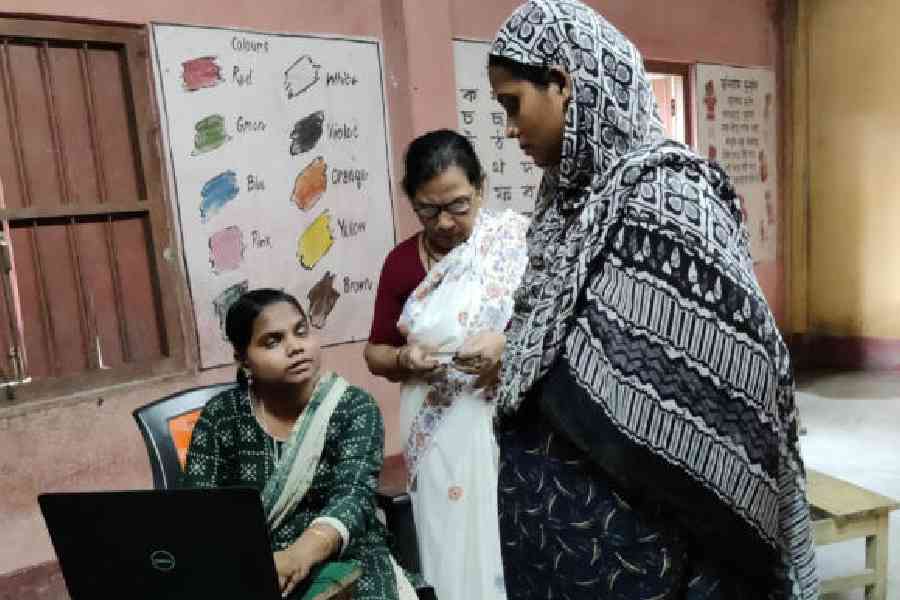Four visually impaired women from Bangalore have joined camps organised in and around Siliguri to screen women for breast cancer.
Khammampati Manasa, Ritika Maurya, Sheena Babu and Amalapuram Aiswarya, who are associated with Enable India, are in Siliguri to work at camps organised by the North Bengal Council for the Disabled (NBCD) to examine underprivileged women and mothers of children with disabilities to find out whether they have breast cancer.
Shukla Deb, the president of NBCD, said the skill to detect breast cancer by visually impaired women was the brainchild of German gynaecologist Frank Hoffmann.
“These girls are medical tactile examiners (MTEs) who have been trained to screen women for early detection of breast cancer. They don’t use any device, gadget or machinery. They simply use palpation of fingers to detect breast cancer or tumour at an early stage that measures less than 0.3mm,” said Deb.
She said there were around 15 such blind MTEs in India who have conducted around 1,700 screenings so far.
“The training was introduced by the National Association for the Blind, Delhi. In our camp, we have four of them who have already conducted 120 screenings in two days. Our special focus is on mothers of children with disabilities and the women population dwelling in tea gardens,” Deb added.
She said the screening camps were organised at Dakshin Shanti Nagar Primary Hindi School in Siliguri and Chathat Primary School in Phansidewa block of Siliguri sub-division on Thursday and Friday. On Saturday, another camp will be held at Navjeevan Institute of Allied Health Education at Dandajhar on the outskirts of the city.
“Along with the four MTEs, there are qualified healthcare professionals to conduct the screenings. Educational sessions on breast health, self-examination techniques and the importance of regular check-ups are also conducted at the camps,” a source said.
Anirban Nag, an oncologist based in Siliguri, said early detection of breast cancer was very important.
“It can be fully cured if it is detected at the first or early stage. Screening can be done at any age, but screening should begin at the age of 35 years for someone with a family history of breast cancer, and after 40 years for those without a family history,” said the doctor.
According to him, breast cancer is the second most common cancer worldwide and it is the number one cancer in women.
Kavita Golyan, a member of the NBCD, said that mothers of children with disabilities often prioritised their children’s needs over their own health.
“This camp provides an opportunity for these mothers to undergo vital health checks, ensuring they remain healthy and capable of providing the best care for their children. We have found that in rural areas of the Siliguri subdivision, there are women who do not even know about this disease. The camp is necessary for them as well,” said Golyan.











